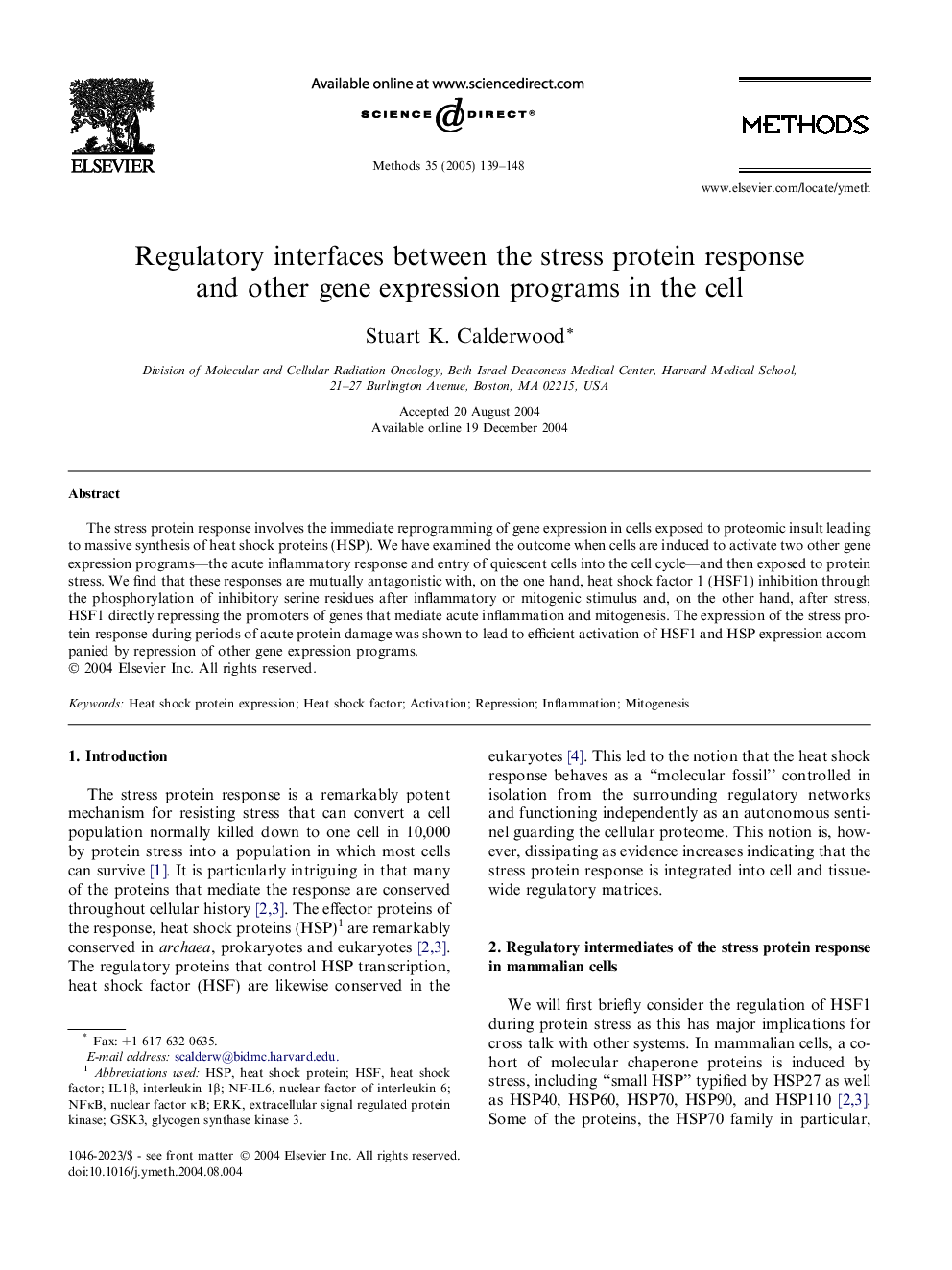| Article ID | Journal | Published Year | Pages | File Type |
|---|---|---|---|---|
| 10826710 | Methods | 2005 | 10 Pages |
Abstract
The stress protein response involves the immediate reprogramming of gene expression in cells exposed to proteomic insult leading to massive synthesis of heat shock proteins (HSP). We have examined the outcome when cells are induced to activate two other gene expression programs-the acute inflammatory response and entry of quiescent cells into the cell cycle-and then exposed to protein stress. We find that these responses are mutually antagonistic with, on the one hand, heat shock factor 1 (HSF1) inhibition through the phosphorylation of inhibitory serine residues after inflammatory or mitogenic stimulus and, on the other hand, after stress, HSF1 directly repressing the promoters of genes that mediate acute inflammation and mitogenesis. The expression of the stress protein response during periods of acute protein damage was shown to lead to efficient activation of HSF1 and HSP expression accompanied by repression of other gene expression programs.
Related Topics
Life Sciences
Biochemistry, Genetics and Molecular Biology
Biochemistry
Authors
Stuart K. Calderwood,
